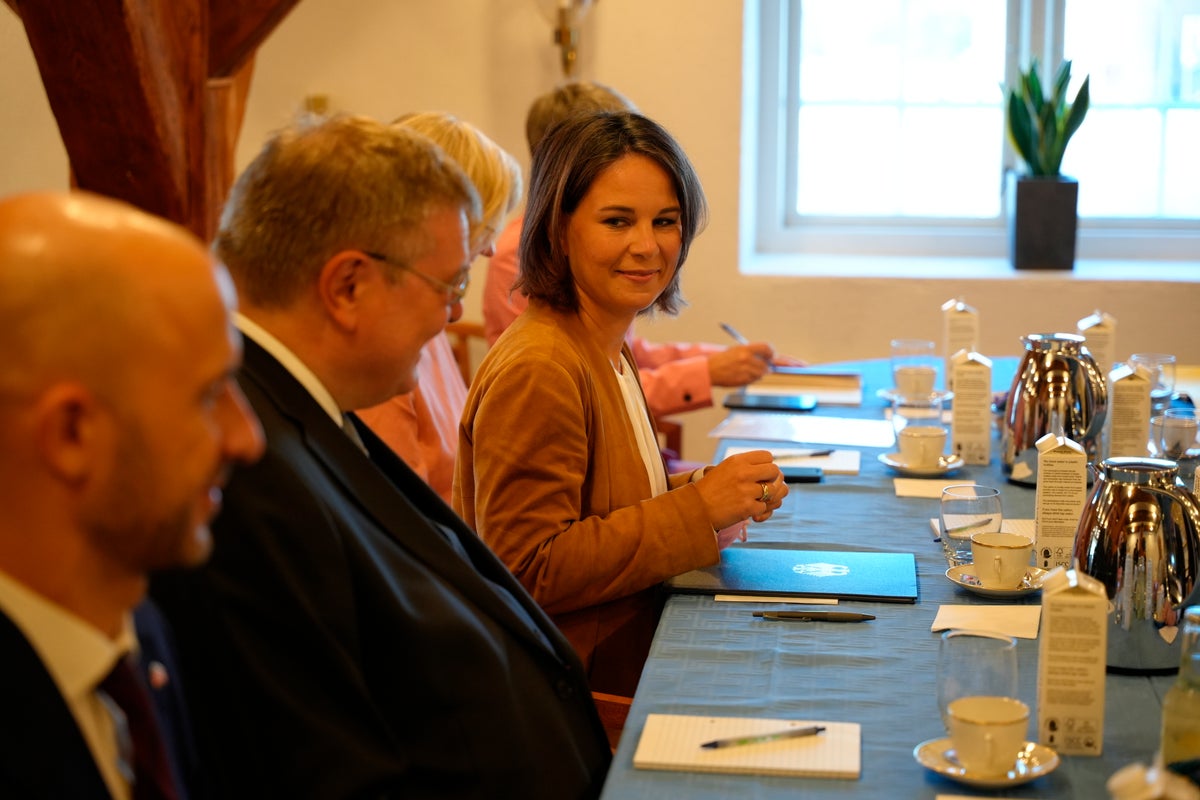
Germany's foreign minister said Friday that estimates show the Baltic Sea can produce “more than twice the installed capacity of all German coal-fired power stations” as the country works to meet climate change targets and to wean itself off of Russia-supplied energy.
In a video message ahead of a meeting in Denmark's capital, Foreign Minister Annalena Baerbock said Germany wants to hasten the expansion of wind power produced in the Baltic Sea.
The countries around the Baltic Sea “need to set the sails, work together and set course towards making our region more sustainable, more resilient and more secure," Baerbock said.
German Chancellor Olaf Scholtz has said Germany remains committed to ending its greenhouse gas emissions by 2045, the earliest of any major industrialized nation. To meet the goal, his government has said it would close coal-fired power plants that were reactivated during the war in Ukraine, end imports of Russian oil and coal this year and aim to stop using Russian gas within the next two years.
The potential for the Baltic Sea “is enormous,” Baerbock said. “The European Commission estimates that the Baltic Sea could potentially produce more than 90 gigawatts in wind energy. That is more than twice the installed capacity of all German coal-fired power stations.”
“Wind energy from the Baltic Sea will help us fight the climate crisis. And it is an investment in our security: it will help make us less dependent on gas from Russia,” Baerbock said.
On July 1, Germany assumed took over the presidency of the Council of the Baltic Sea States for one year. The intergovernmental forum for regional cooperation consists of the European Union and 10 member nations: Denmark, Estonia, Finland, Germany, Iceland, Latvia, Lithuania, Norway, Poland and Sweden.
Following Russia's invasion of Ukraine, the council suspended Russia from its activities. Moscow later said it had decided to withdraw from the council, saying the organization was turning into “an anti-Russian tool."
Denmark is scheduled to hold a meeting next week on the Baltic Sea island of Bornholm to discuss ways “to make the Baltic Sea region free of Russian energy and at the same time pave the way for a significant green transition,” according to the Danish government.
Those expected to attend include the president of the European Union's executive commission, Lithuania's president, the prime ministers of Poland, Latvia, Estonia, Finland and Denmark, and several energy ministers.
___
Frank Jordans in Berlin contributed to this report.







